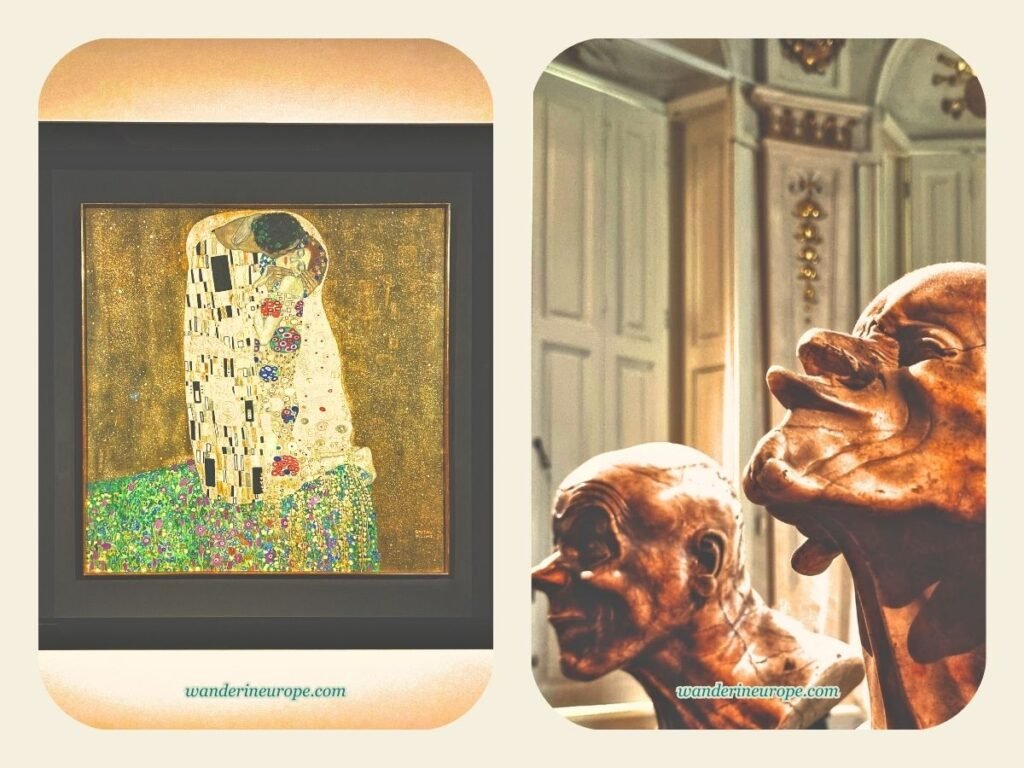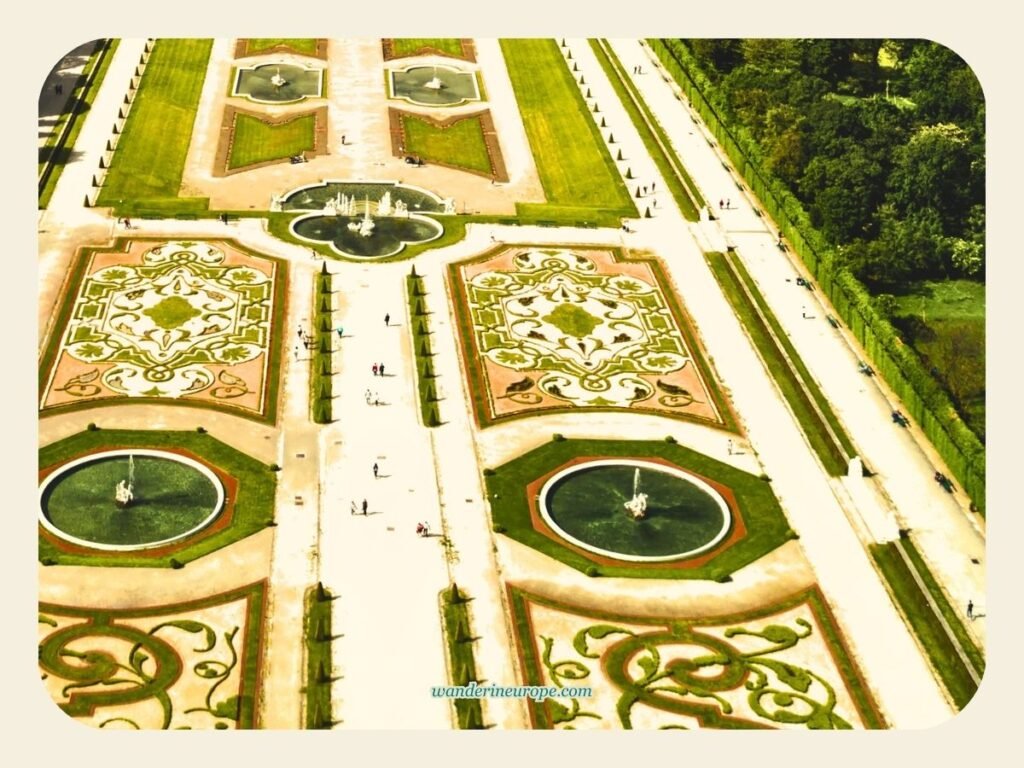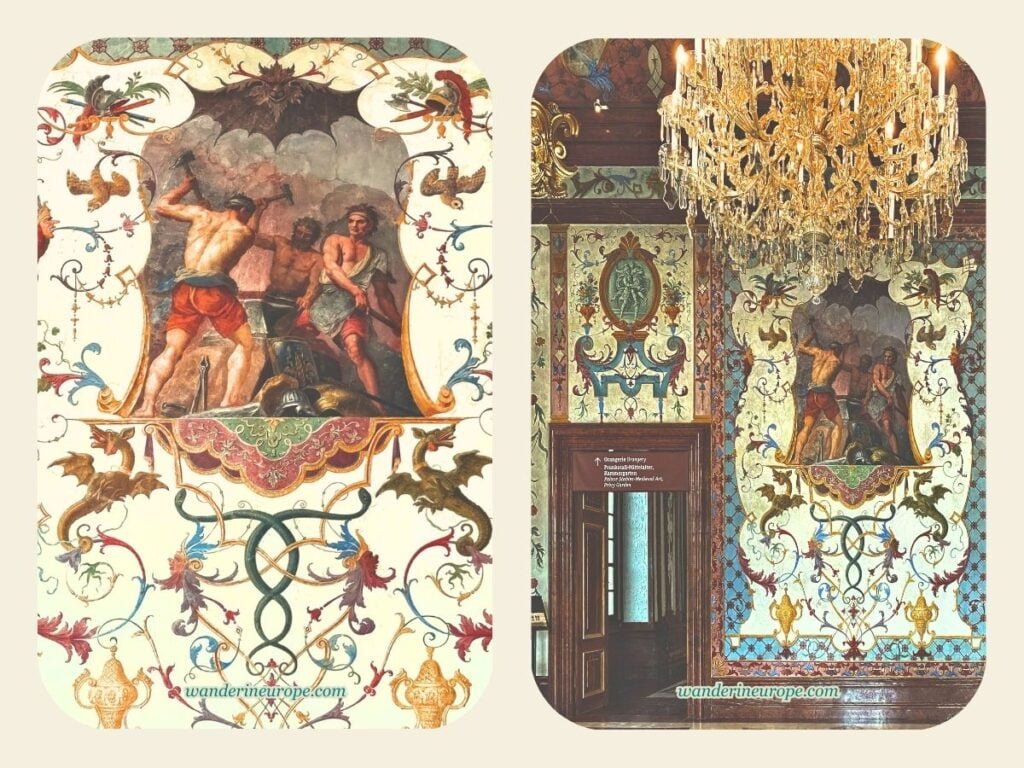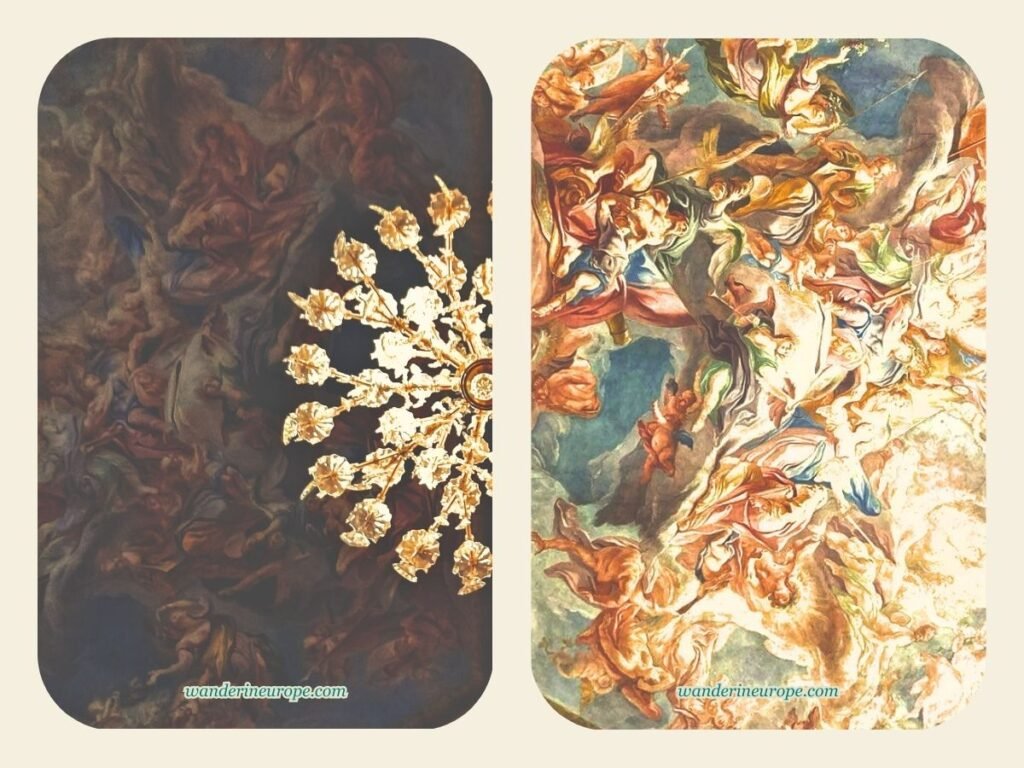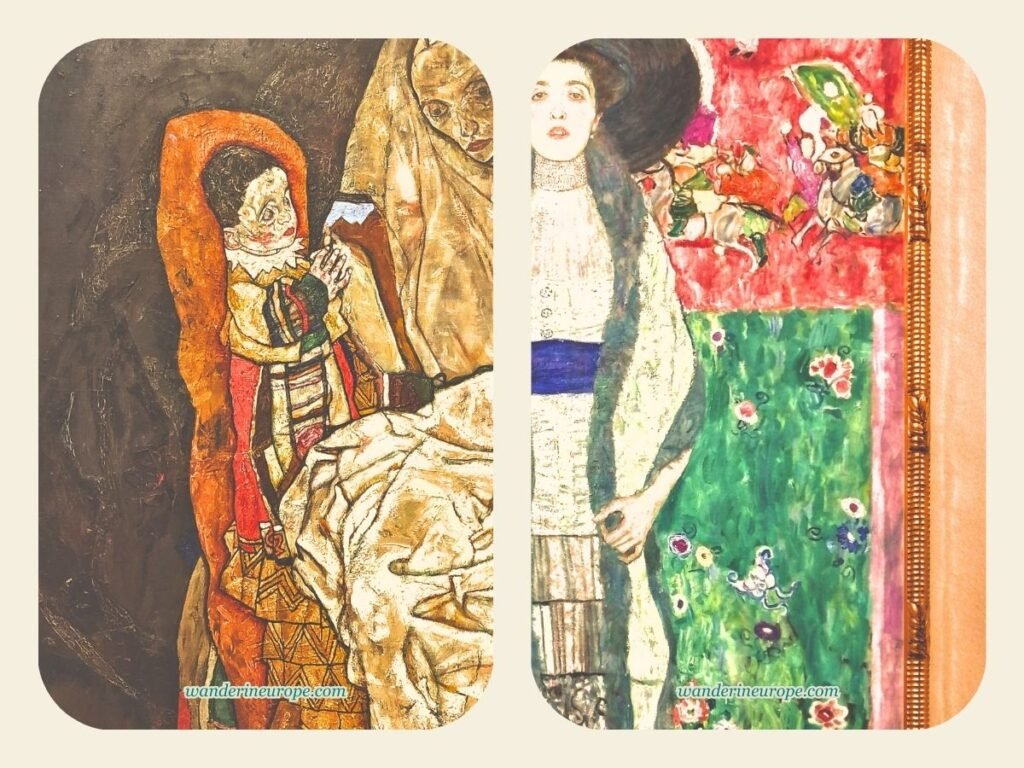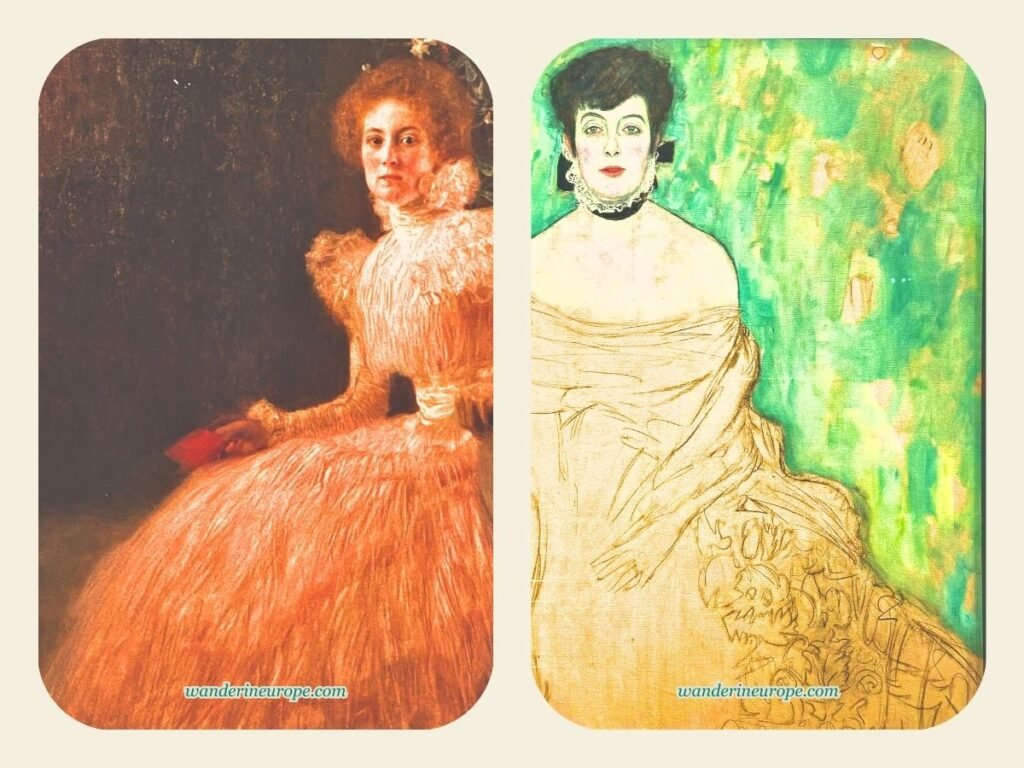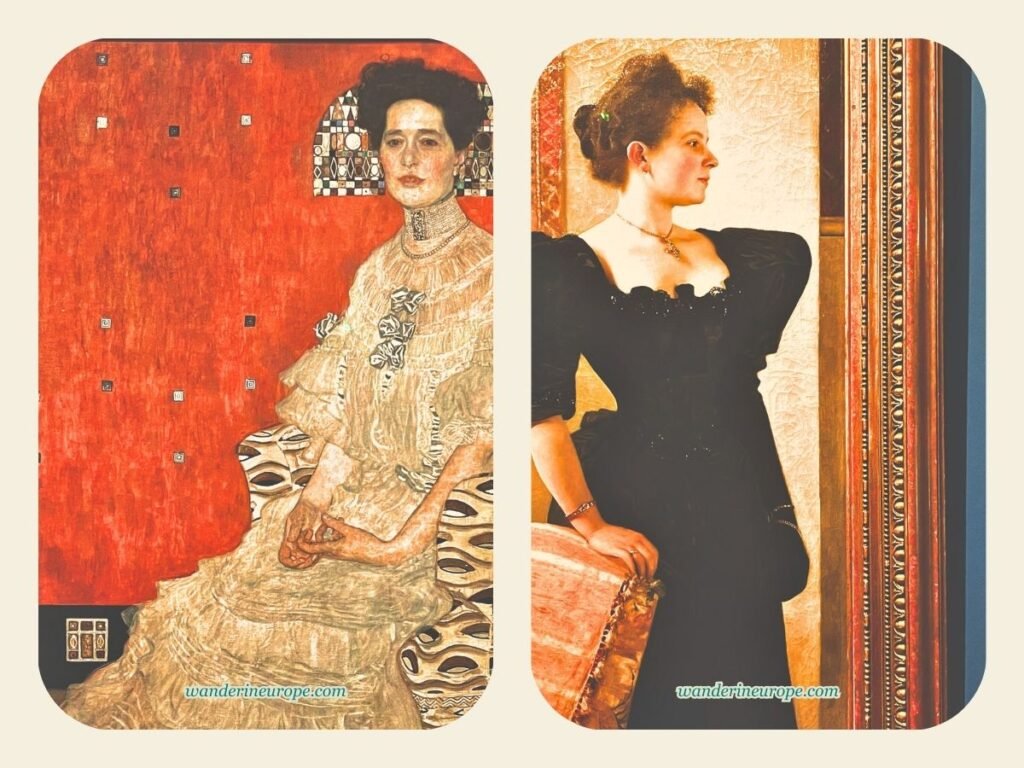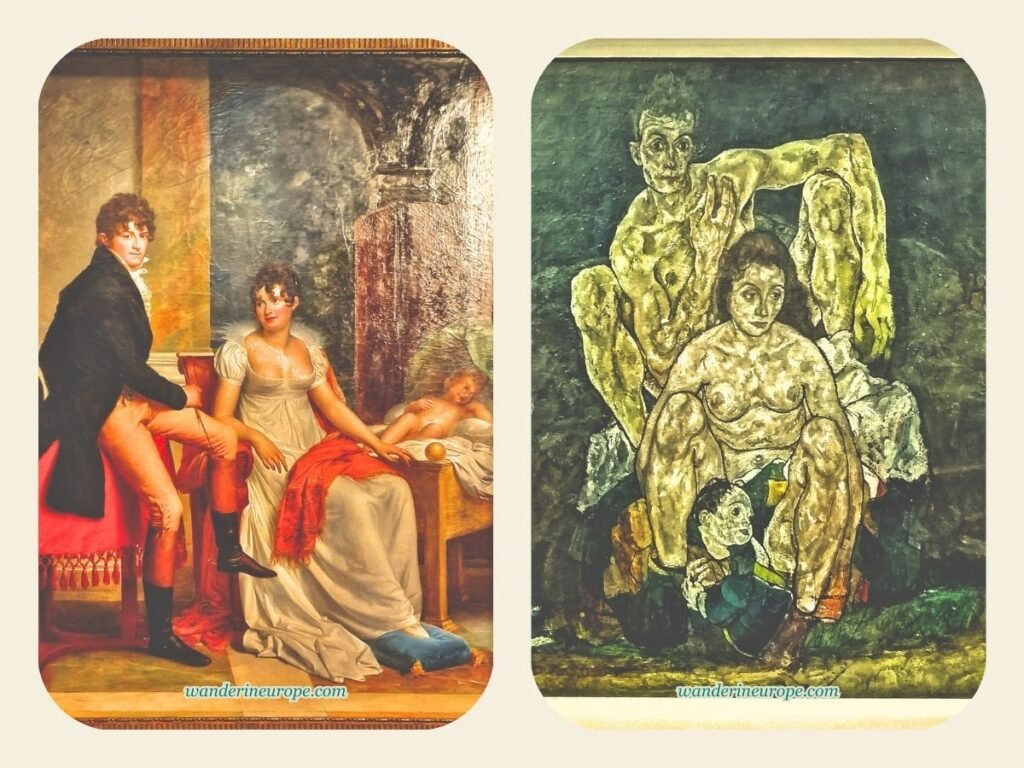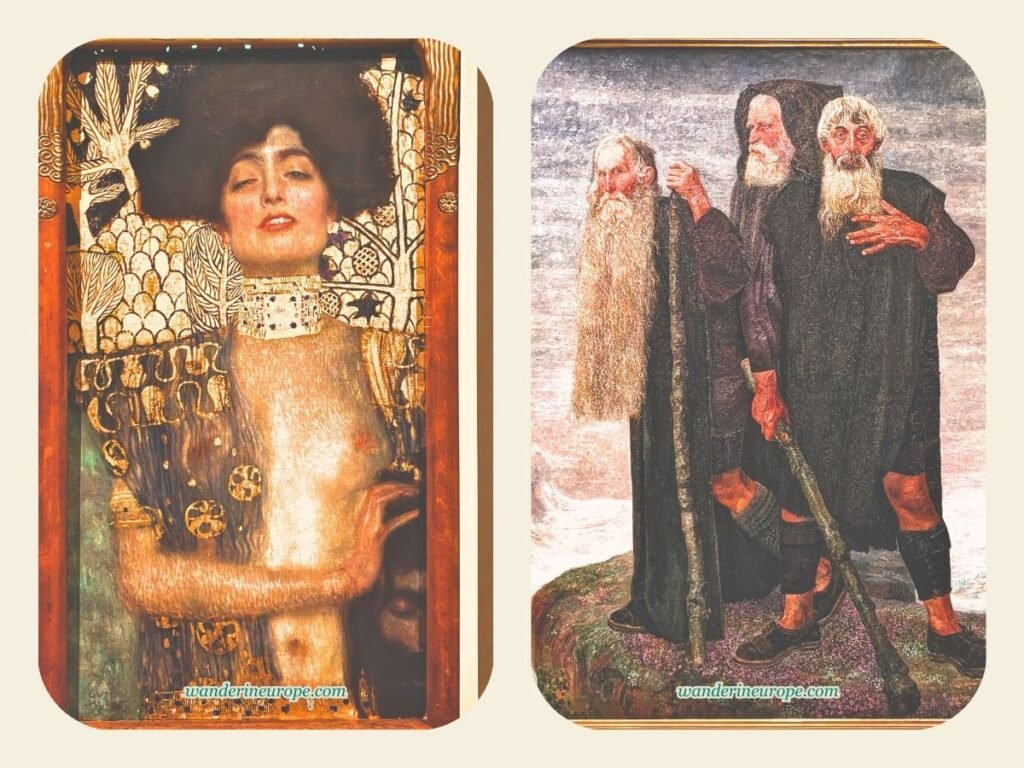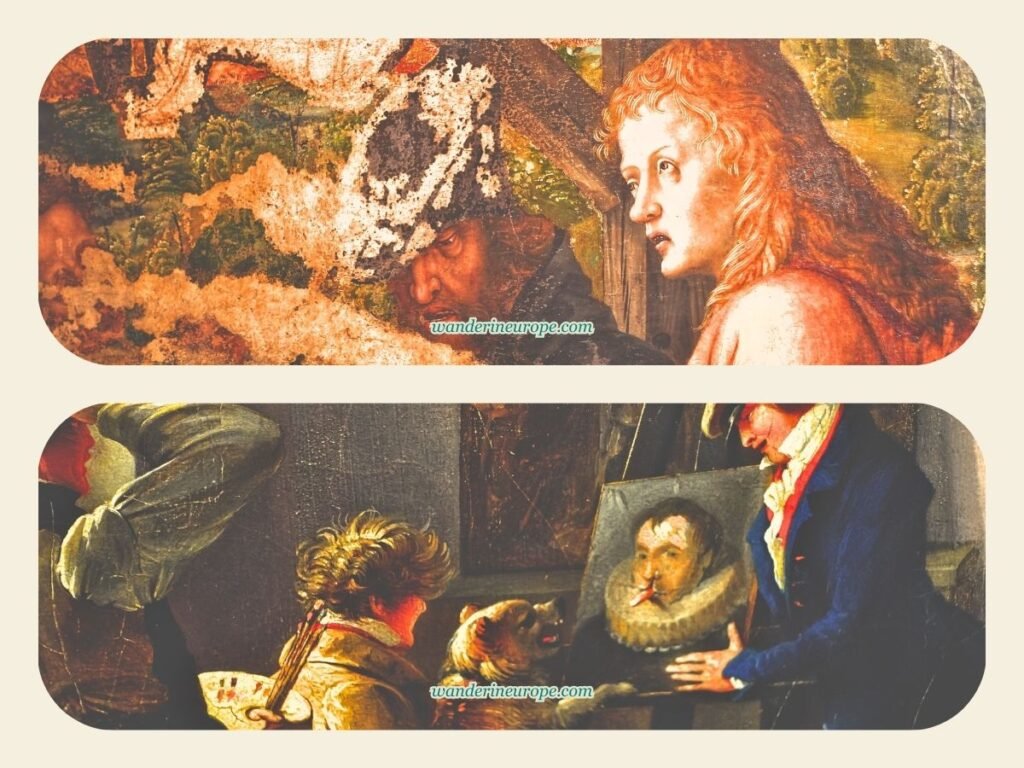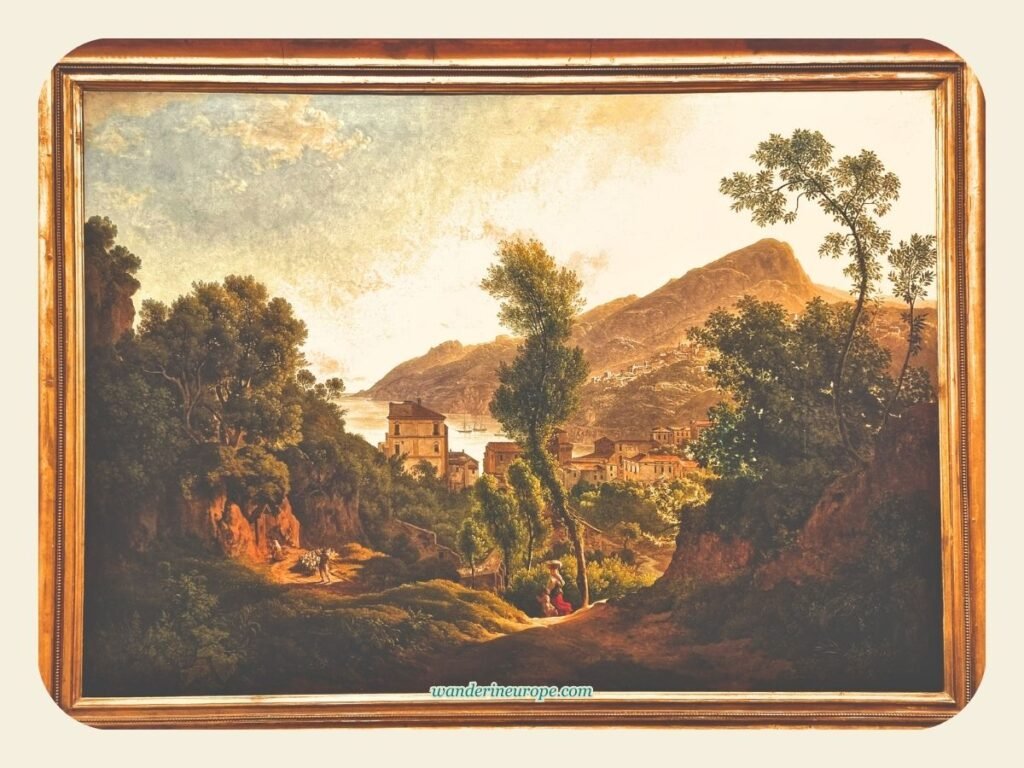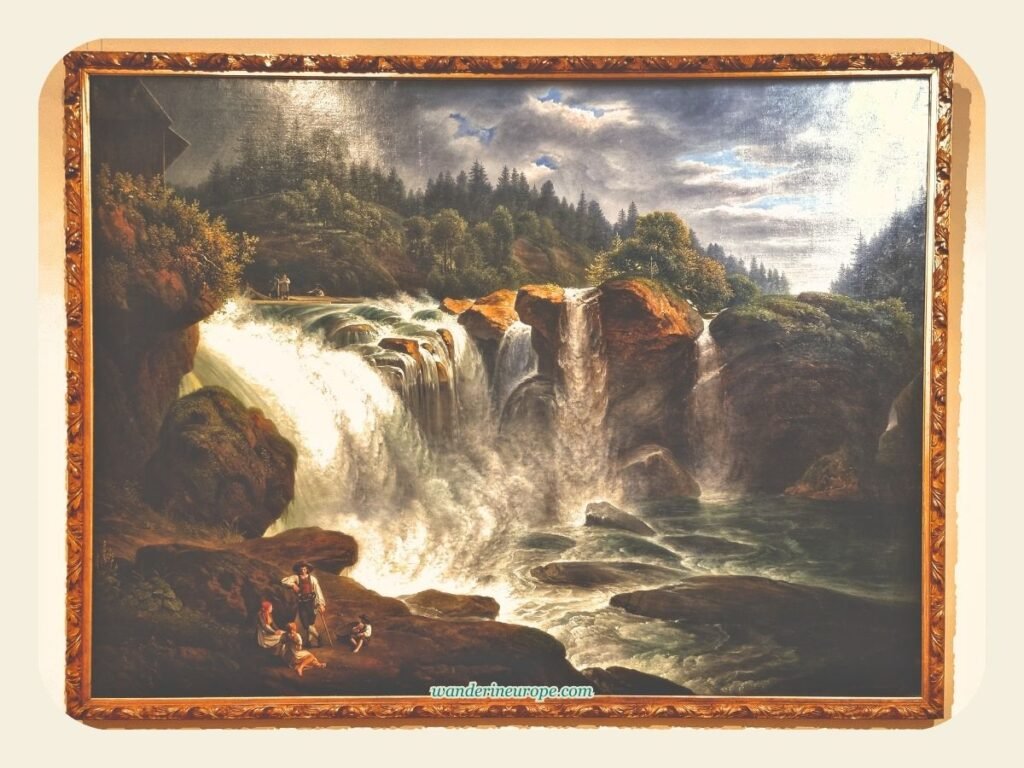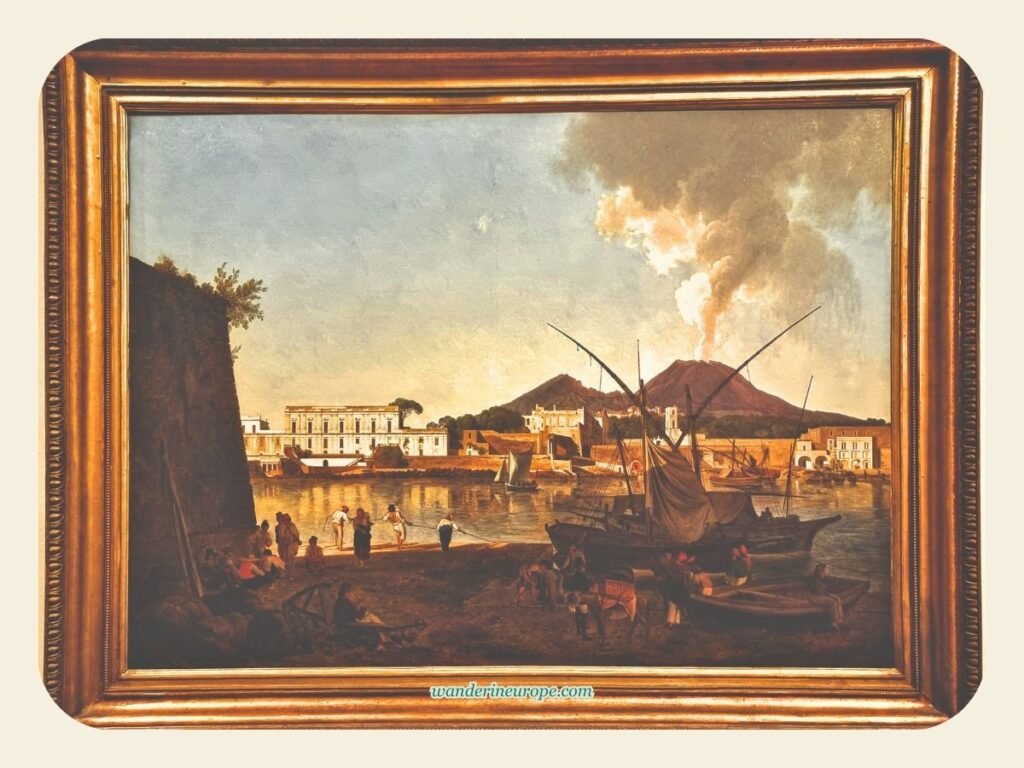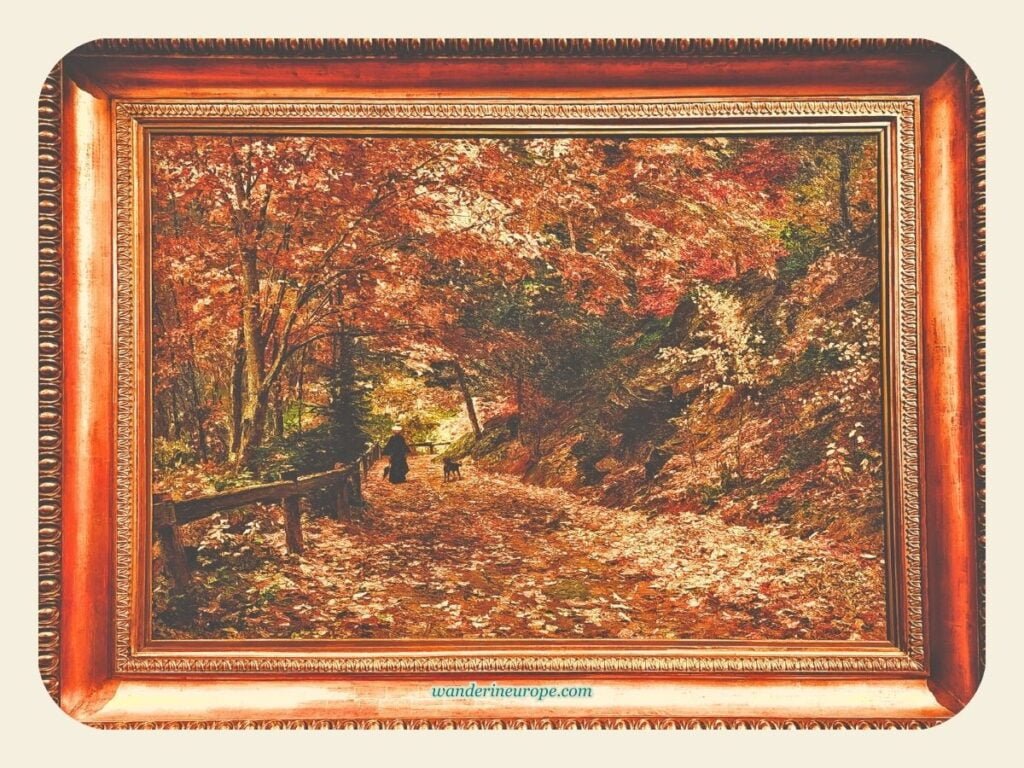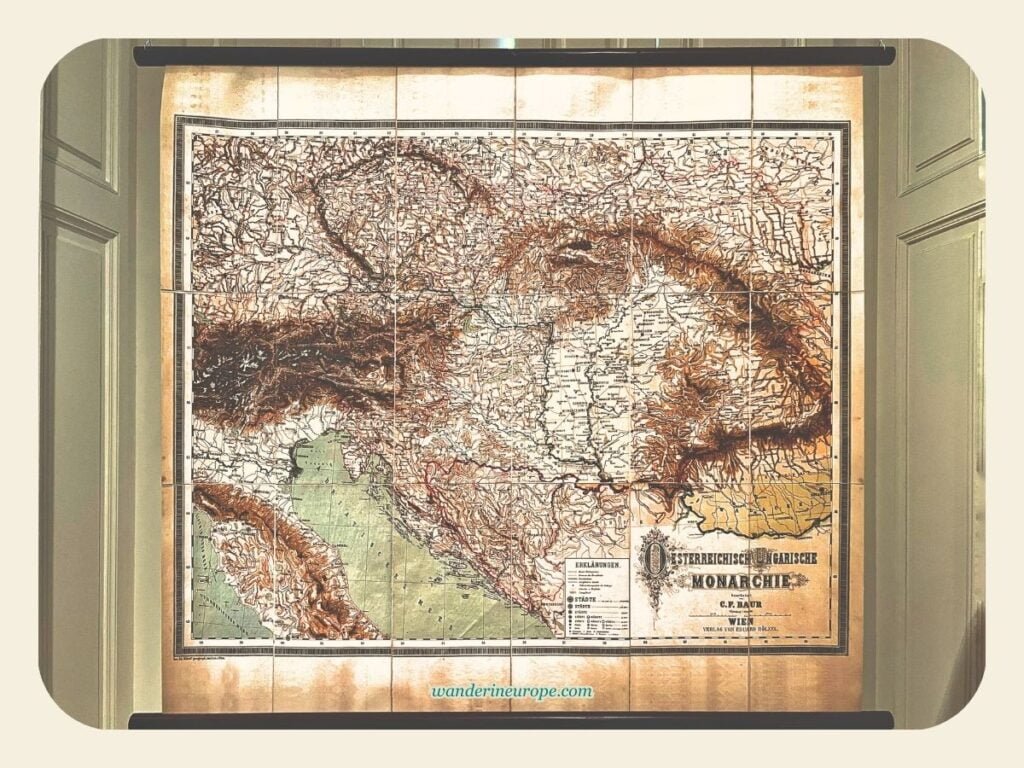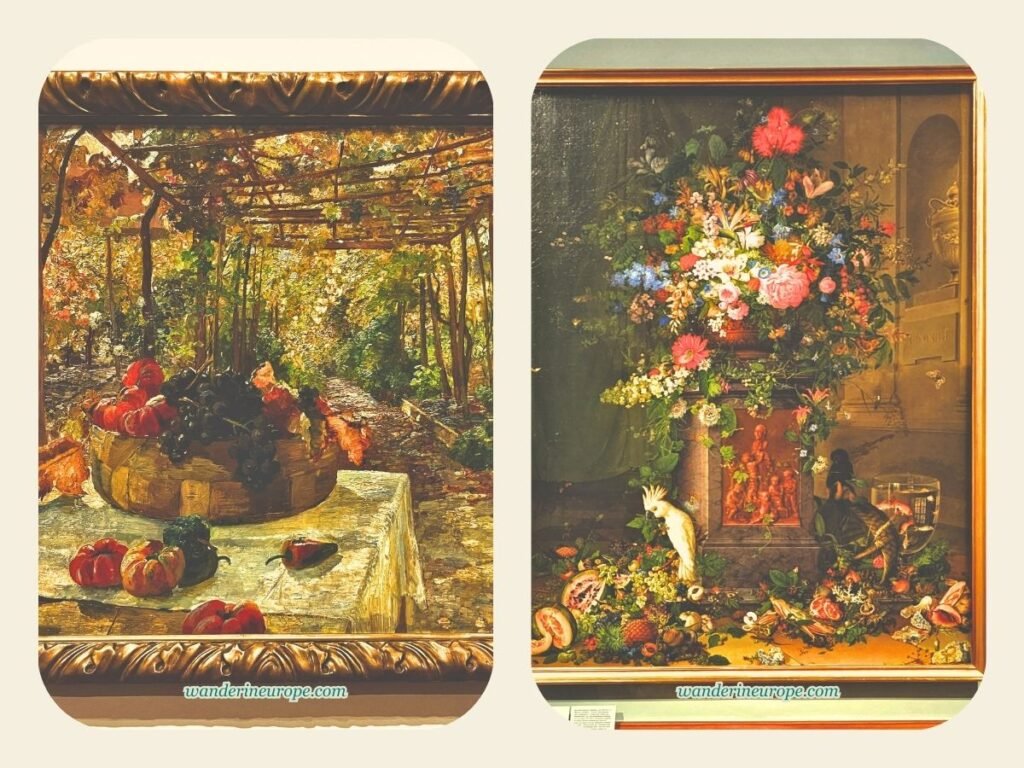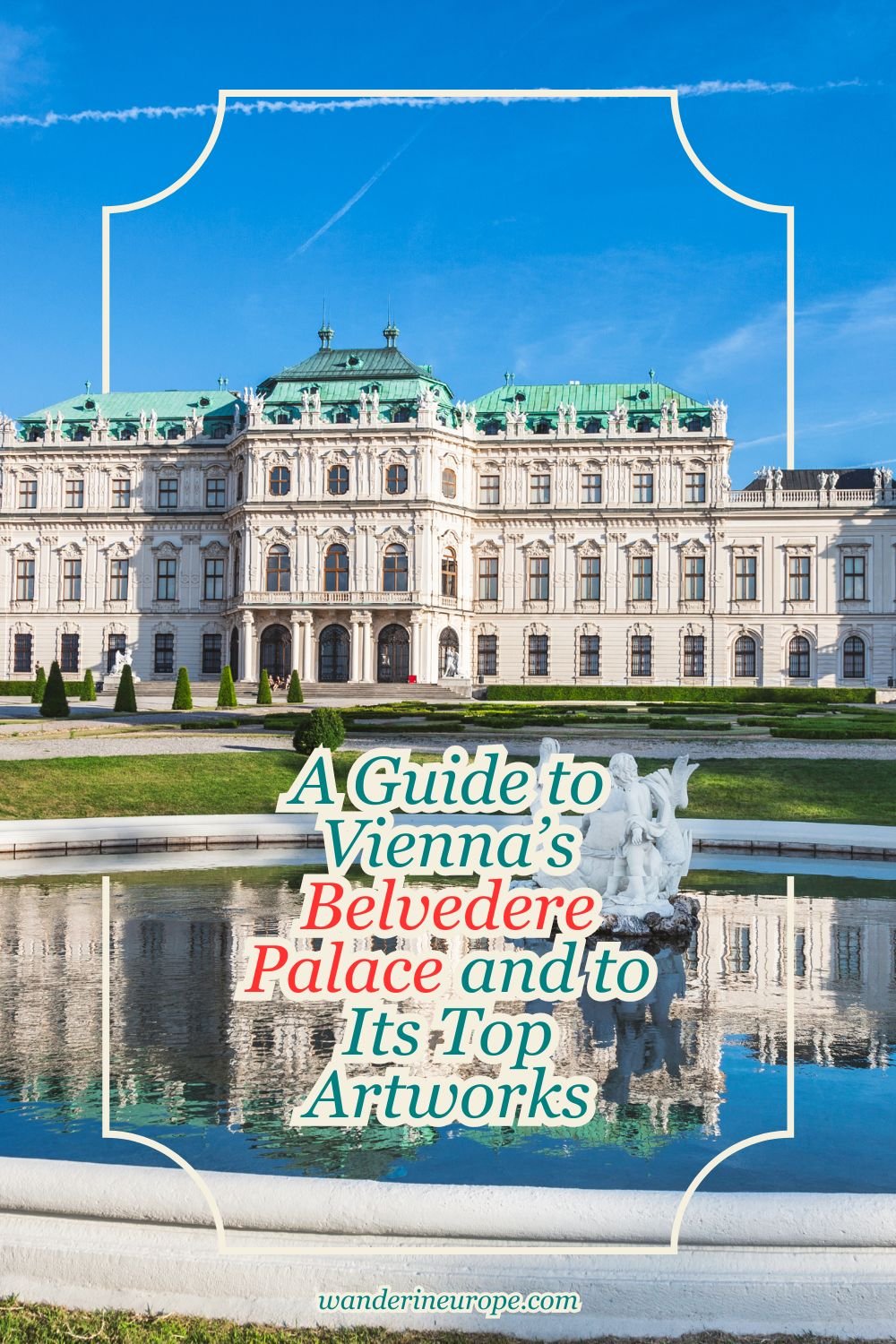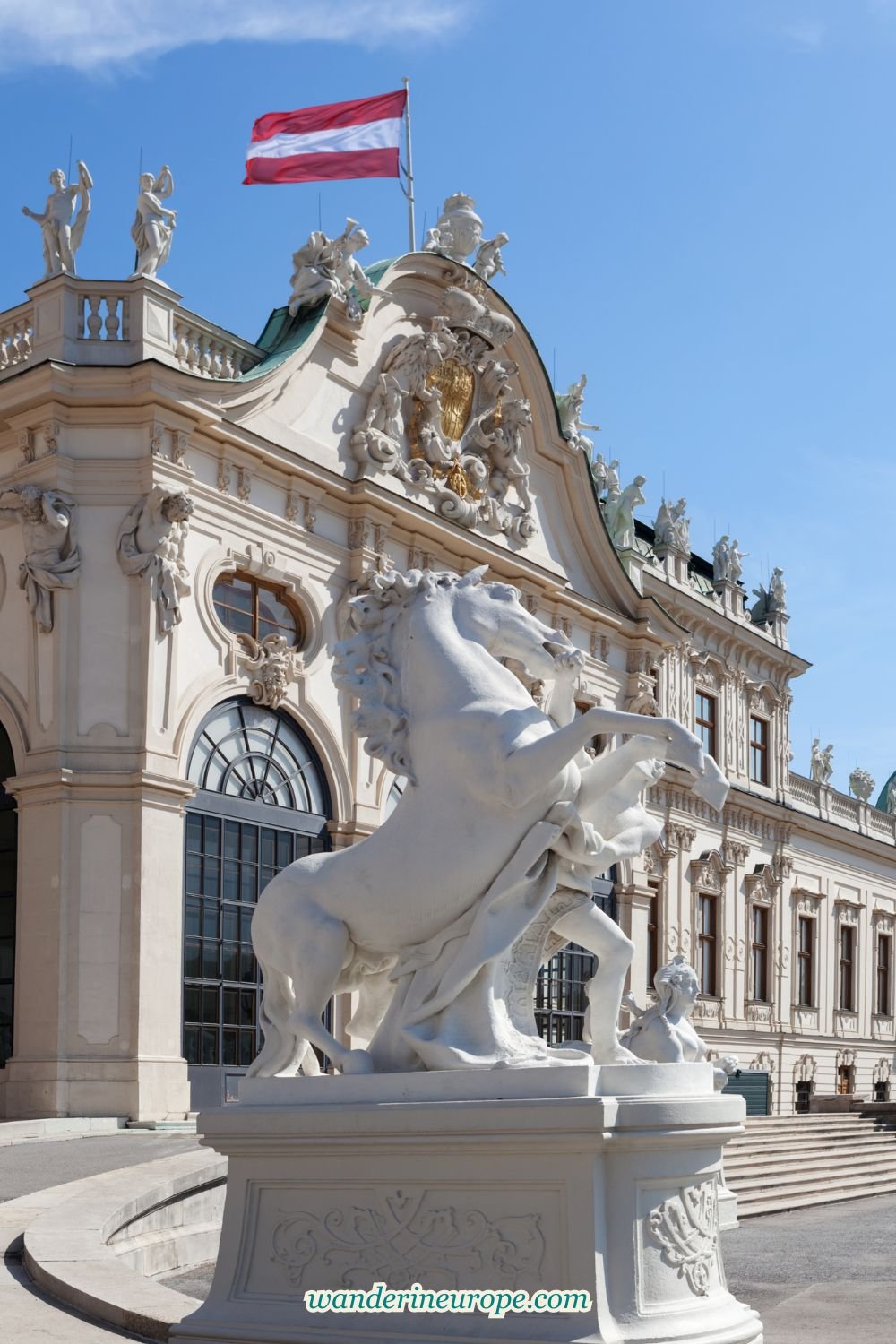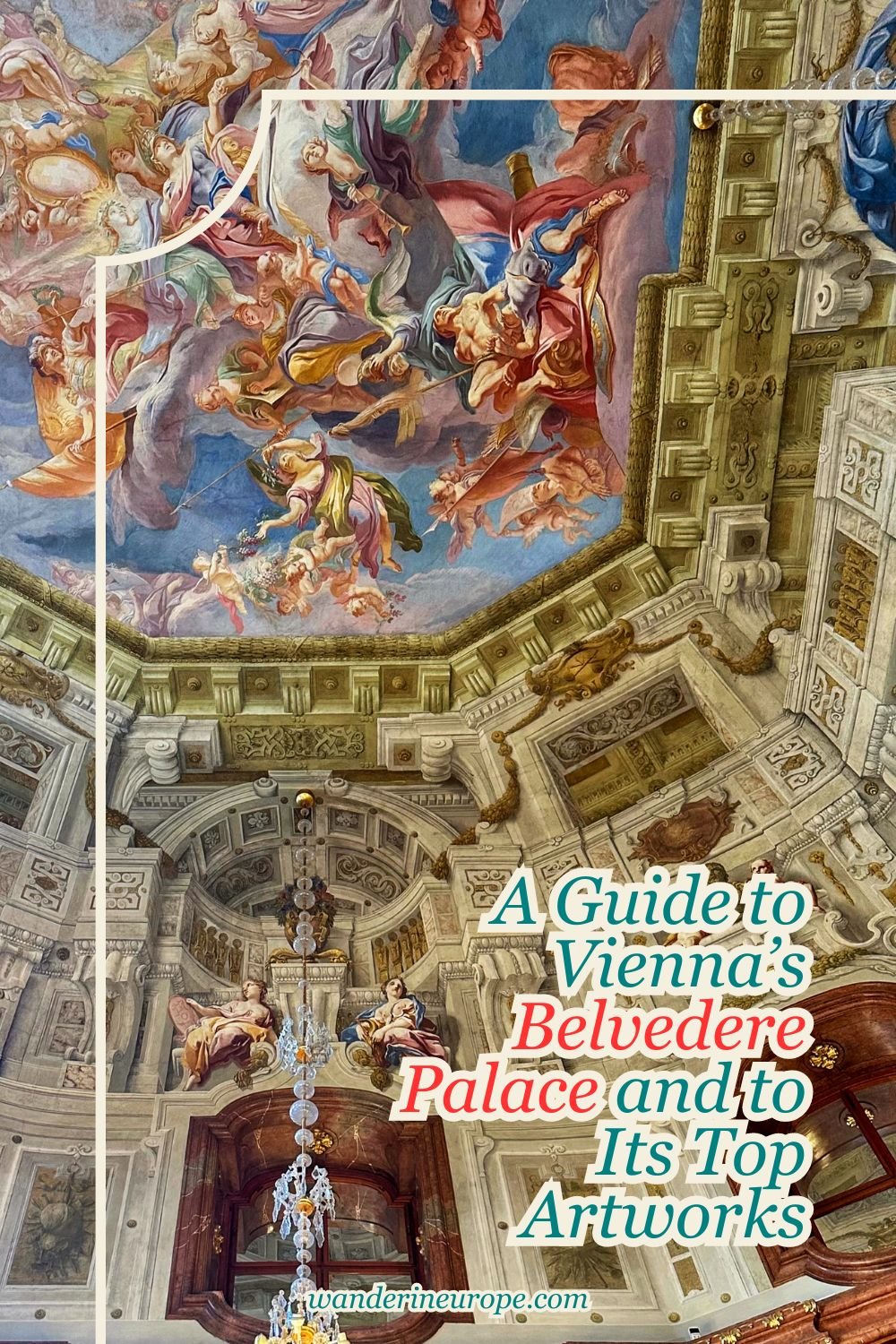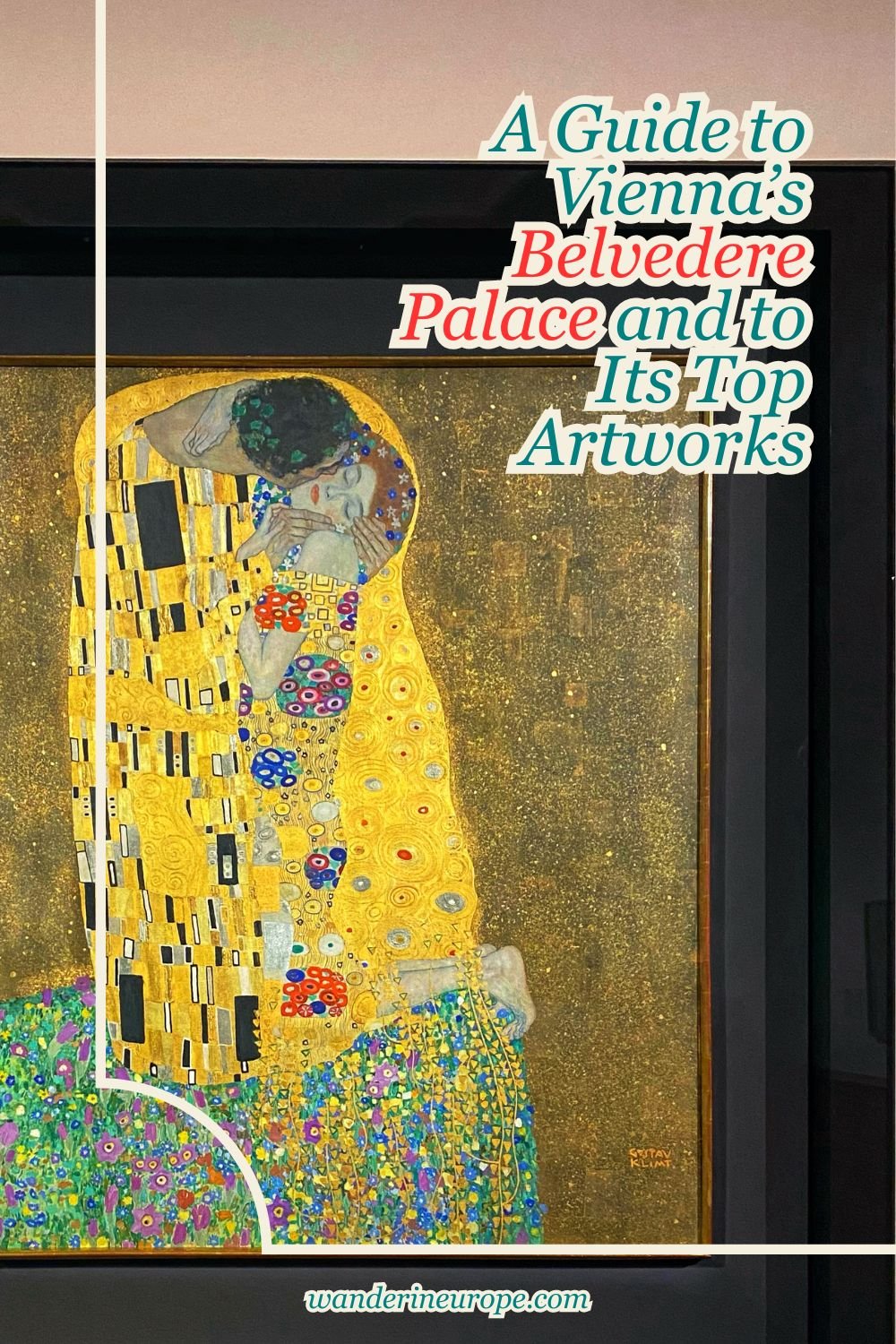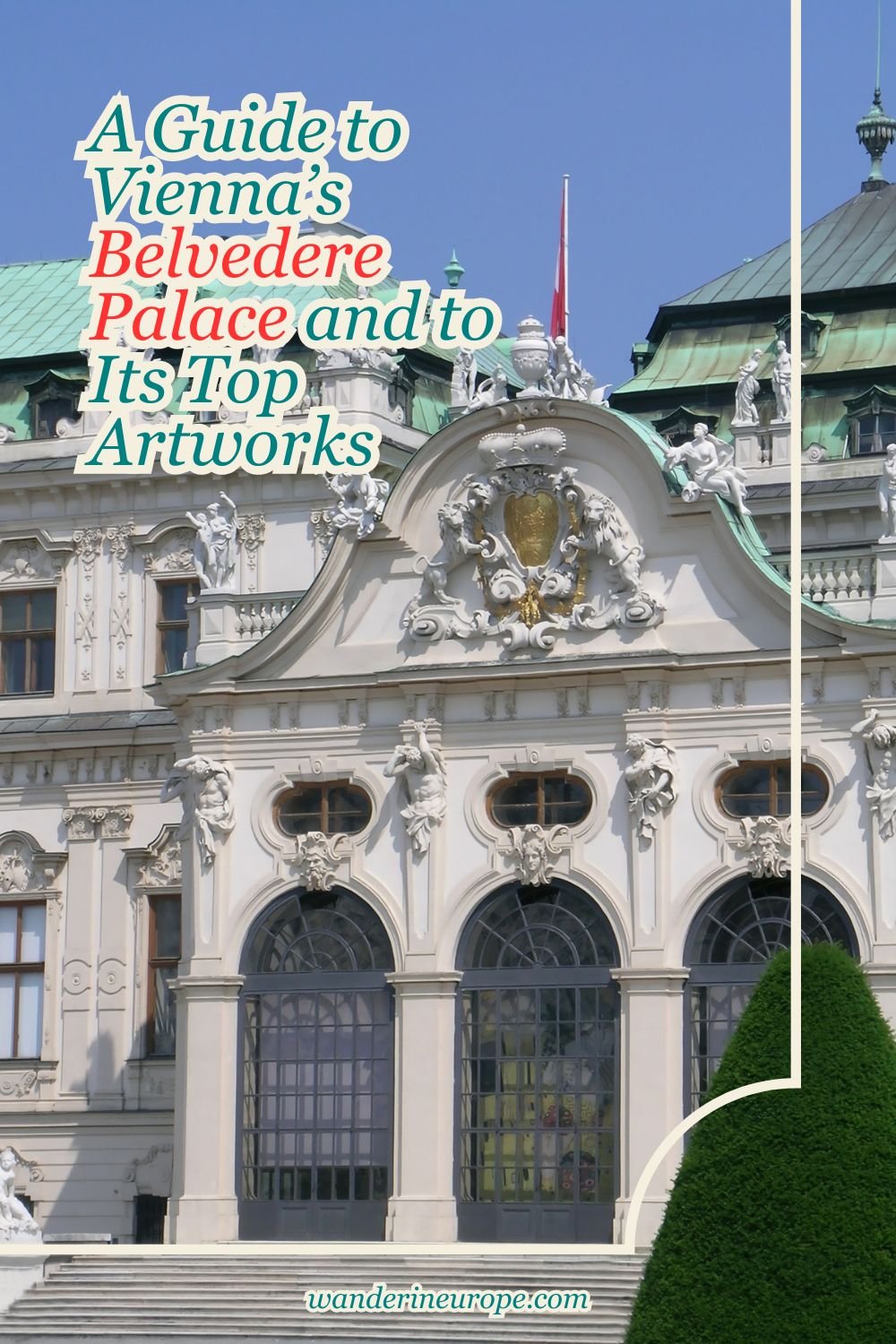A Guide to Vienna’s Belvedere Palace and to Its Top Artworks
WanderInEurope is reader-supported. Affiliate links and ads help us keep creating useful content for you.
Must See Parts of the Palace
The Belvedere Palace is made up of several parts. Below is the map, labeled with the names of the parts of the palace. In my view, however, you can already get a real sense of the Belvedere Palace by visiting just three areas: The Upper Belvedere, Lower Belvedere, and the garden nestled between them. These places showcase unique artworks and significant paintings, along with stunning architecture and photo spots that most of us are looking for.


Map of the Belvedere Palace 
Upper Belvedere Palace 
Lower Belvedere Palace

Some of my favorites waiting for you there include the Baroque Garden, the Gold Cabinet, the Hall of Grotesques, the Marble Hall at Upper Belvedere, Carlone Hall at Upper Belvedere, The Kiss, Napoleon Crossing the Alps, and the Character Heads. We’ll talk more about all of these later. Truth be told, choosing my favorites was a challenge.
The palace grounds were a feast for the eyes, even before stepping inside. I was particularly taken with the ornate iron gate at the southern entrance, close to the Alpine Garden.
But before anything—here’s something important to remember: the exhibits at Belvedere Palace are not always the same. They rotate on a schedule. The frequency of these rotations can vary, depending on the specific exhibition. Your experience may differ from others, depending on when you visit. To ensure you have the most accurate information, I recommend checking the official Belvedere Palace website. You can find the link in the resources section of this post.
Check it out: Vienna Activities for Less Than $100 (opens in a new tab)
Baroque Garden (A Photo Spot)
The first part of Belvedere Palace that I’d recommend is the Baroque Garden. This garden, situated between the Upper and Lower Belvedere, is the largest in the palace and among the most beautiful in Vienna. here are several features here that will catch your eye, such as the elegant fountains and the cherubic sphinx statues. However, the garden’s planting beds are arguably the most special feature here.


The Gold Cabinet (Lower Belvedere)
Palaces, in their grandeur and magnificence, were constructed with the intent to awe those who visit. The Habsburg Empire’s immense wealth is prominently displayed in these rooms, and it’s hard not to be taken aback by it. Among the publicly accessible rooms of the Belvedere Palace, the Golden Cabinet stands out.


The Hall of Grotesques (Lower Belvedere)
During my exploration of the Kunsthistorisches Museum and Schönbrunn, I was struck by the Habsburg Monarchy’s deep appreciation for art. Their love for art is evident not only in their extensive collection of artworks but also in the way they adorned their rooms with art. This artistic flair is not just confined to Hofburg and Schönbrunn, but can also be seen in the Belvedere Palace, particularly in the Hall of Grotesques.


The Marble Hall (Upper Belvedere)
The Marble Hall in the Upper Belvedere is undoubtedly the most historically significant part of the Belvedere Palace. It’s where Leopold Figl and representatives from the USA, UK, France, and the Soviet Union signed the Austrian Treaty years after World War II.

The Carlone Hall (Upper Belvedere)
Before you ascend to the Marble Hall located on the first floor of the Upper Belvedere, you’re likely to visit the Carlone Hall first. Located on the ground floor, this room is immediately to your right as you stand in the entrance. When you’re visiting Belvedere, The Carlone Hall is another absolutely can’t miss because of its beautiful design. Imagine walking inside a temple, with every inch of the walls and ceilings covered in frescoes. That’s exactly what it feels like.
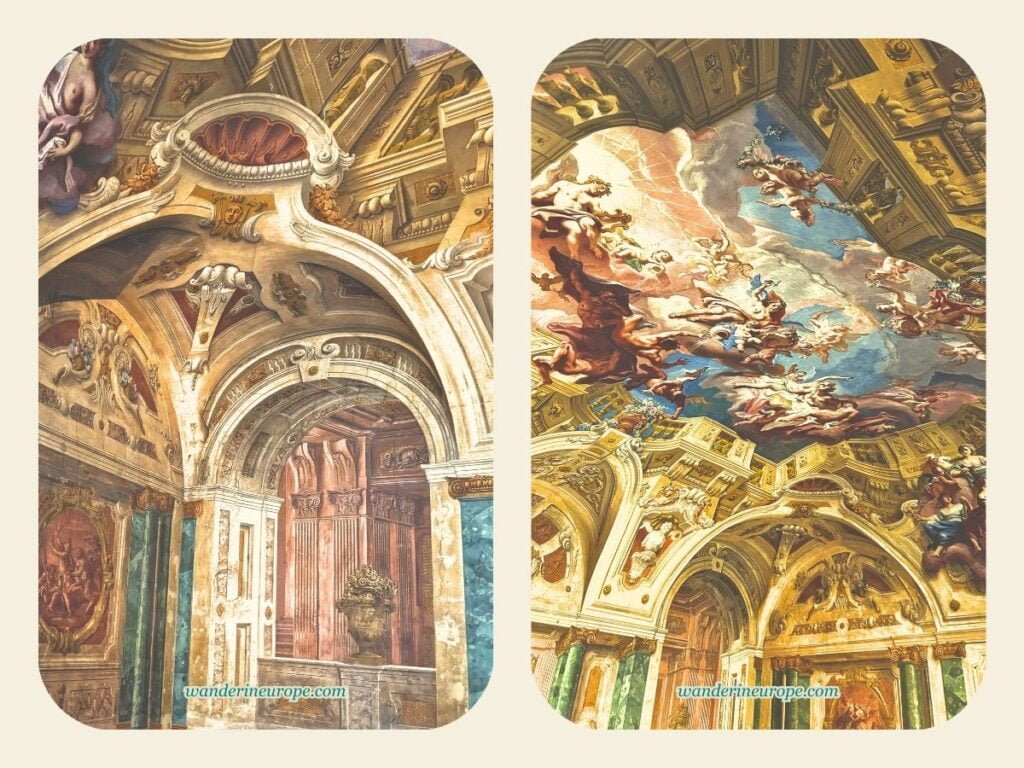

Der Kuss (The Kiss)
The Belvedere Palace is a great destination because it serves dual purposes. It’s both a historical palace and an art museum, offering visitors a double dose of culture in one trip. Now, as an art museum, the Belvedere Palace has some real gems. The crown jewel? That would be “The Kiss” (or “Der Kuss”), a masterpiece by Gustav Klimt.
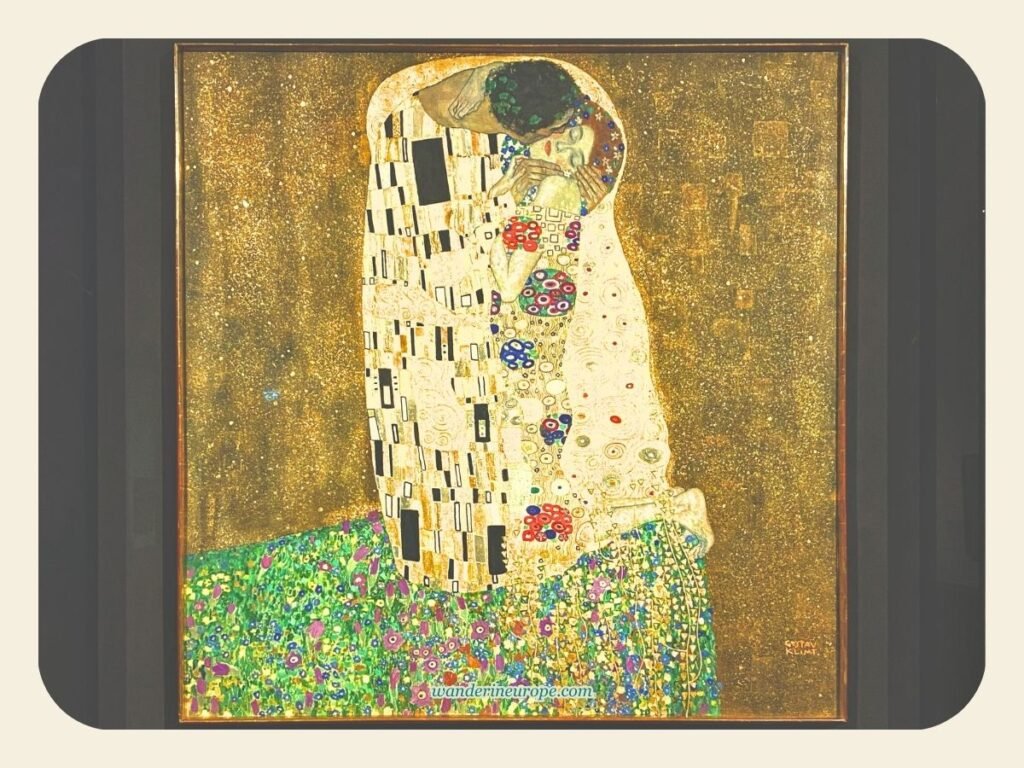
Napoleon am Großen St. Bernhard (Napoleon Crossing the Alps)
Did you know that the famous painting ‘Napoleon Crossing the Alps’ has different original versions?One version can be found in Charlottenburg Palace in Berlin. Another is housed in Versailles, near Paris. A third version is located in Belvedere Palace. This painting is a must-see in the palace as it’s a significant piece of art history. It’s a powerful depiction of Napoleon Bonaparte, one of the most influential figures in Western history.


Character Heads
Belvedere Palace isn’t just home to paintings, it also houses sculptures from various eras. One collection that caught my eye was the Character Heads by Franz Xaver Messerschmidt. Even though they were sculpted in the 1700s, they have a modern feel to them. If I had been alive when they were created, I would have been completely intrigued by their mysterious look.

More Photos (Architecture & Exhibits)
More beautiful artworks and architectural scenes await you in Belvedere Palace. Here are the other exhibits and parts of the Belvedere Palace that I think you would like to see as well.

How Much Time Here?
With the wealth of artwork to discover and beautiful spaces to explore at the Belvedere Palace, you might be wondering how much time you’ll need for your visit. The answer isn’t straightforward, as it really depends on which parts of the palace you’re interested in.
If you’re pressed for time, half a day (about 4 hours) should be enough to see the garden, the Lower Belvedere, and the Upper Belvedere. However, this won’t allow you to fully appreciate each piece of artwork. You should be able to catch the highlights in that timeframe, though.
If you’re traveling on a budget or you don’t have a Vienna Pass, I’d recommend prioritizing the Upper Belvedere. It houses a larger collection of artwork and some of the palace’s most stunning architecture.
Notably, it’s also where you’ll find works by famous artists.
If that’s your plan, you should be able to cover the essentials in about 2.5 hours, including a quick stroll through the garden. If you enjoy taking photos or want to spend more time relaxing in the garden, you might want to allocate 3 hours for your visit.
From great hotel deals to skip-the-line tickets and affordable eSim to cheap rentals, click here for the best hotel deals and more travel discounts.
Beyond Belvedere Palace
Your eyes will be in for a treat at Belvedere Palace, but that could just be the start of an unforgettable wandering experience in Vienna!
Try the wanderer’s favorite experiences in Vienna. From breathtaking views to remarkable landmarks, these unforgettable places made exploring this amazing city so special.
For ideas and inspiration on making the most of your visit to Vienna, check out the travel plans below.
Find all the travel guides to Vienna and its tourist attractions below.
Resources
So, there you have it. That’s a glimpse of the beauty I’ve uncovered at the Belvedere Palace. In case you’re still in the planning stage to visit Vienna, I hope this gives you a better idea of whether or not to include the palace in your Vienna itinerary. The links below are helpful resources in further planning.
- Current exhibitions inside Belvedere Palace
- Belvedere Palace Visitor’s Information
- Upper Belvedere Ticket Information
- Lower Belvedere Ticket Information
- Upper Belvedere Skip The Line Tickets (Guided Tour)
For a convenient, unique, or more enriching visit, check out these experiences and services:


Pin this to save it for later or bookmark it to read anytime.



